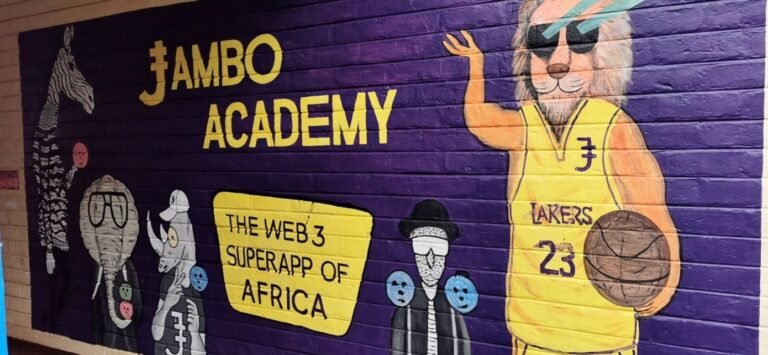Jambo, a Congo-based startup building Africa’s web3 user acquisition portal through “learn, play, earn” and democratizing access to crypto-based income-generation opportunities, has raised $7.5 million in seed funding.
Experts say Africa is poised to be disrupted by web3 in a similar fashion that has seen Southeast Asia become one of the best markets for web3. The latter is home to startups like Axie Infinity and Yield Guild Games, which have raised millions of dollars in venture capital owing to the adoption of crypto and play-to-earn models.
The mix of positives such as a fast-growing population–the youngest globally–, solid smartphone penetration, increasing crypto adoption, and negatives like low GDP per capita across board and unemployment makes Africa the next ripe ground for web3.
And a few companies, such as Jambo, are positioning themselves for this next boom. According to James Zhang, its co-founder and CEO, Jambo wants to onboard millions of users to web3 in Africa through its applications. He founded the company with his sibling Alice Zhang — both Congo-born Chinese — in December 2021 after noticing the opportunity to duplicate the success of web3 projects in Southeast Asia across Africa.
Although users of Axie Infinity and other guilds only earn an income while playing games under a revenue-sharing model, Jambo is taking a two-sided approach by allowing its users to do so when they partake in web2 and web3 activities.
For instance, users can save their data spend when they use Jambo. Zhang explains that Jambo partners with telecom providers to get an almost 70% discount and sell directly to its users at a 50% discount from the original cost. “It’s one of our main user acquisition strategies where we want to double every Africans airtime and data,” Zhang said.
Secondly, Jambo is partnering with social media companies so users can earn tokens (which they can convert to income) while watching their content on its app.
“The reason we can do that is via partnerships with these companies as we tokenize a part of their advertising budget and directly provide to the end-user,” he said. “Many web2 incumbents or even web3 are having a $100-200 user acquisition costs so we can lower that by order of magnitude by directly incentivizing the end-user.”
The last bit is play-to-earn games. There are currently no popularized play-to-earn web3 games from Africa and this is because the infrastructure to create them, which is through Guilds, is lacking. Zhang said Jambo wants to build that infrastructure. Still, unlike well-known guilds whose business models involve taking percentages of profit from its users, his company doesn’t plan to take a cut from its users’ earnings. Instead, Jambo’s revenues would come from web2 models — charging advertising dollars and commissions from selling airtime and data.
As the “web3 onboarding portal of Africa,” the CEO said Jambo is testing out over 10 play-to-earn games to introduce to its users in the next couple of months.
Since the start of this year, Jambo has already signed up over 12,000 students across 15 countries (Morocco, Nigeria, Ethiopia, Equatorial Guinea, Uganda, Kenya, Congo, Uganda, Rwanda, DR Congo, Tanzania, Zambia, Namibia, Madagascar and South Africa) to take a curated web3 curriculum, both online and offline. The company said this would enable students to explore opportunities in play-to-earn gaming and decentralized finance (DeFi). The 10-week programs are available at colleges and across 600+ physical partner locations where hundreds of ambassadors sign up students.
With nearly 60% of the population under 24 years of age and almost 50% of university graduates in Africa unemployed, Jambo believes its model of educating users about play-to-earn games and DeFi could “lead to financial prosperity in ways Africans could never have accessed before.”




